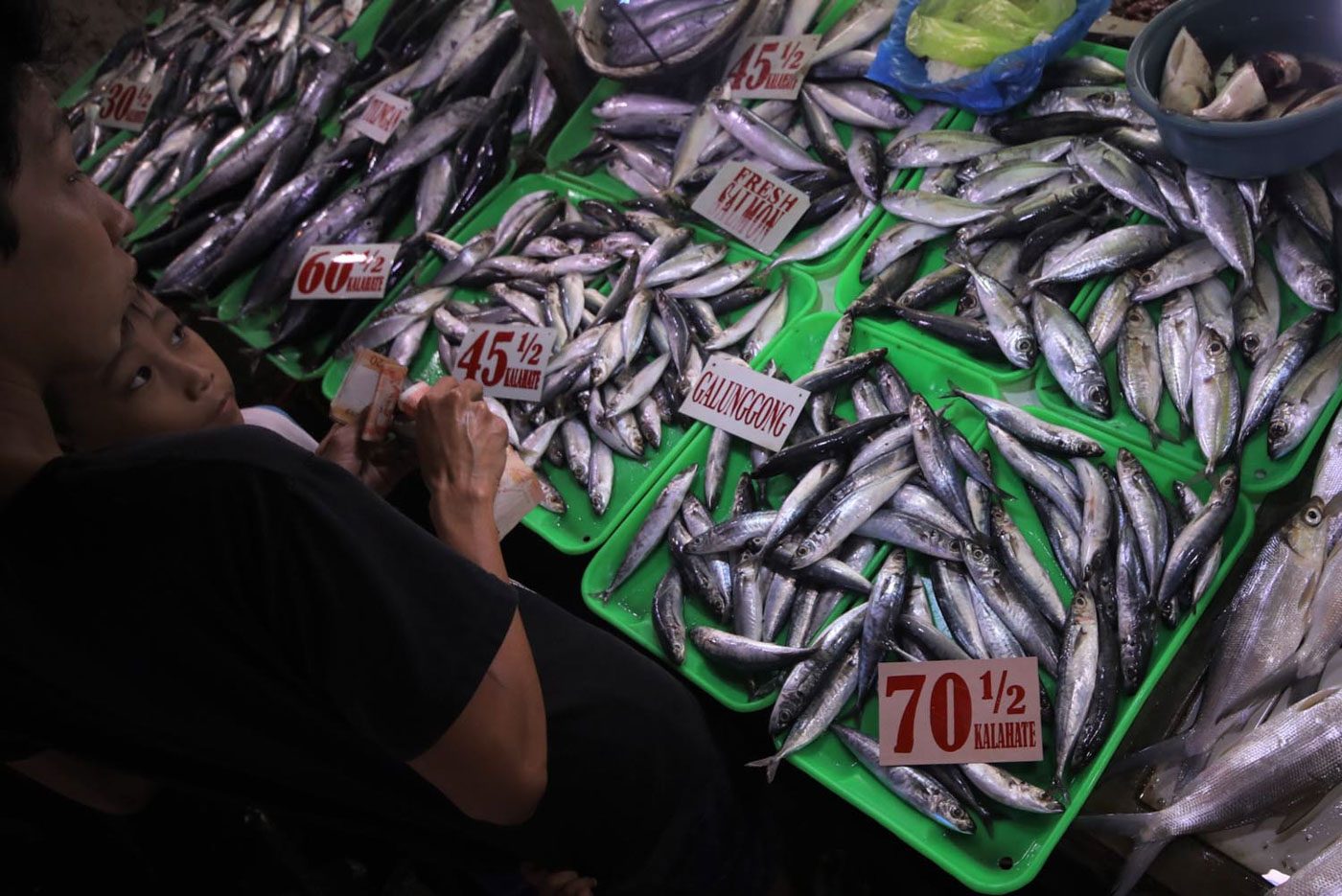SUMMARY
This is AI generated summarization, which may have errors. For context, always refer to the full article.

MANILA, Philippines – Most Filipinos perceive fish in the market are becoming more expensive and smaller, a survey by the Social Weather Stations (SWS) showed.
The survey commissioned by international group Oceana, titled Feasting or Fasting on Fish: Filipino Public Opinion on Fisheries, found that 82% of Filipinos believe fish sold in markets are more expensive now compared to 10 years ago.
A total of 1,500 adult Filipinos were interviewed for the study.
The Philippine Statistics Authority (PSA) reported that fish inflation in September rose to 12.4% year-on-year.
Meanwhile, 54% said the size of fish has become smaller.
Around 71% of respondents said they consume fish at least 5 times or more in a month, while only 3% said they consume only once.
The Visayas is the most fish-loving region, with 86% of residents there stating that they consume fish at least 5 times in a month.
Majority or 55% of the participants of the study also stated that they found less varieties of fish in local markets compared to a decade ago. Only 15% reported that they found more varieties, while 28% said the kinds of fish were the same compared to 10 years ago.
Meanwhile, 57% of respondents said there was less catch of fish in their area compared to a decade ago. Only 13% reported more catch, while 26% said the quantity was the same.
The PSA reported that there was a downtrend in fish catch in the country. Fish catch in 2017 stood at over 4.3 million metric tons, much less than the 5.1 million metric tons recorded in 2010.
The report also found that while majority will report illegal fishing, there is very low awareness of the 1998 Fisheries Code.
Oceana recommended that local governments and enforcement agencies collaborate with each other and with constituents. (READ: [OPINION] Securing our fisheries to ensure food security)
They also urged policy makers and advocates to build stronger campaigns to boost engagement in fisheries management. – Rappler.com
Add a comment
How does this make you feel?
There are no comments yet. Add your comment to start the conversation.